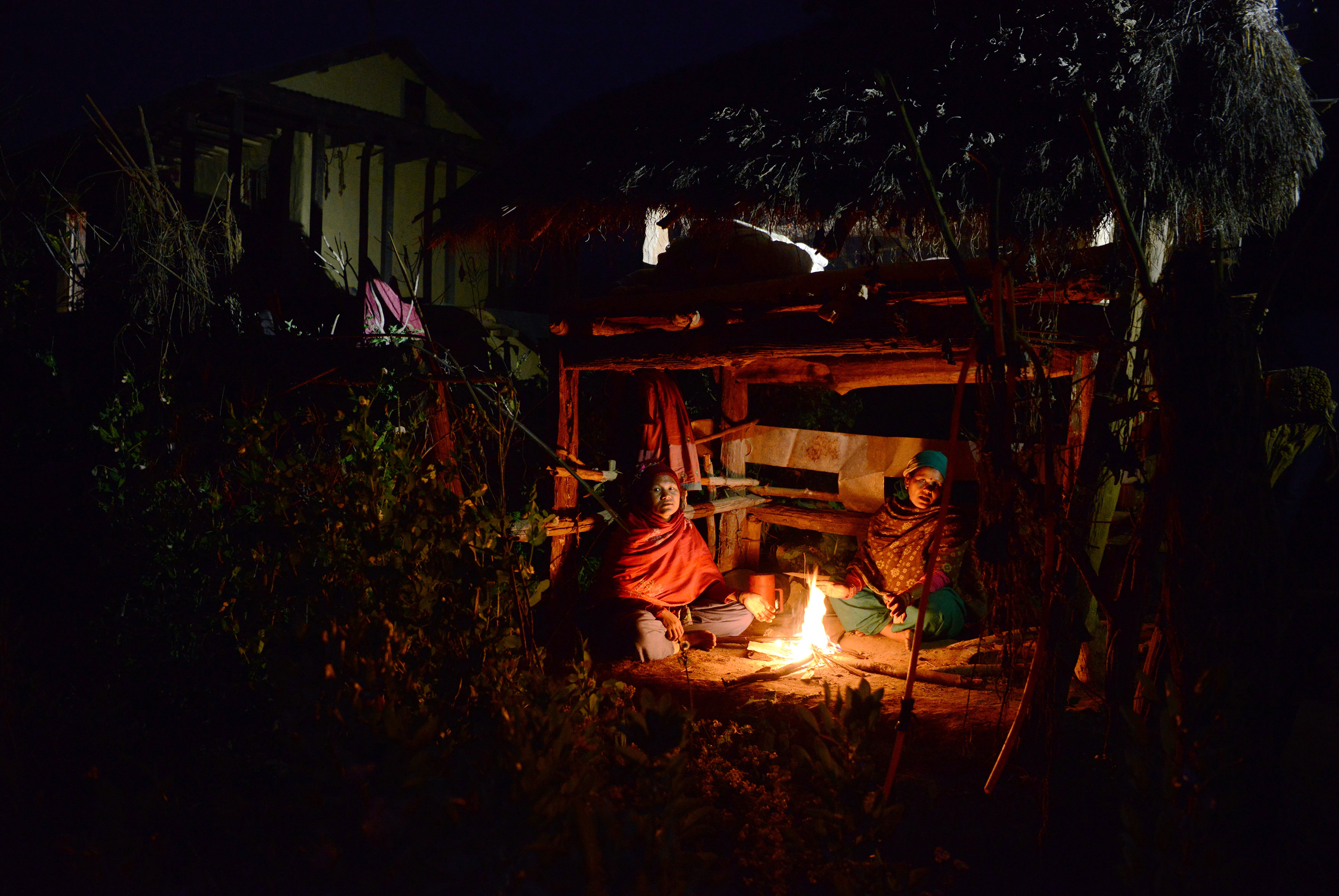Nepali woman, two children, die in outlawed ‘menstruation hut’

In this photograph taken on February 3, 2017, Nepalese women Pabitra Giri (L) and Yum Kumari Giri (R) sit by a fire as they live in a Chhaupadi hut during their menstruation period in Surkhet District, some 520km west of Kathmandu. AFP PHOTO
Kathmandu, Nepal – A Nepali mother and her two children have died of suspected smoke inhalation after a night in a windowless hut where women are banished during their period, police said Wednesday.
Many communities in Nepal consider menstruating women as impure and force mothers and daughters to stay in sheds away from the family home once a month, despite the practice being outlawed.
Police said Amba Bohara, 35, fell asleep in a hut in western Bajura district on Tuesday evening with her two sons aged 12 and nine.
The trio had huddled around a fire to stay warm in Nepal’s freezing winter conditions.
Local police chief Uddhab Singh Bhat told AFP the woman’s mother-in-law opened the hut the next day to find all three dead.
Article continues after this advertisement“We are waiting for the results of a postmortem to confirm the cause of death, but believe they died of suffocation,” Bhat told AFP. “We are investigating.”
Article continues after this advertisementParts of the blankets sheltering the trio were burned, and Bohara had suffered burns to her legs.

In this photograph taken on February 3, 2017, Nepalese woman Yum Kumari Giri looks at a Chhaupadi hut during her menstruation period in Surkhet District, some 520km west of Kathmandu. AFP PHOTO
The ancient shunning practice known as “chhaupadi” was outlawed in 2005 but is still enforced in parts of Nepal, particularly its remote and conservative western regions.
Last year, Kathmandu introduced three-month jail and fine of 3,000 rupee ($30) for anyone caught imposing chhaupadi.
The practice is linked to Hinduism and considers women untouchable during menstruation and after childbirth.
Under Chhaupadi, women are barred from touching food, religious icons, cattle, and men during their period and must sleep away from others.
The death of Bohara and her children are not the first linked to the practice.
Last year, a 21-year-old woman succumbed to smoke inhalation while banished to a hut, and other women have died from snake bites in the past.
The country’s National Human Rights Commission said police needed to do more to enforce the law.
“Women will continue to die unless there are consequences for enforcing this tradition,” said the commission’s Mohna Ansari. /kga